MedEd Learning Experience
The MedEd Learning Experience podcast is a weekly podcast series that provides brief, interview-style discussions with clinical experts and is designed to teach safe and effective use of different therapies in patient monitoring and respiratory interventions. The podcast will feature discussions on anesthesia and brain monitoring, unplanned extubation in the NICU, routine intubation with video laryngoscopy, challenges in the NICU, the value of NIRS in clinical practice in the NICU, non-invasive and invasive ventilation in the NICU, and more. The goal of this program is to get closer to the patient and delve into the challenges and impact of each technology in practice. For more medical education content, please visit: https://www.medtronic.com/covidien/en-us/clinical-education/catalog.html
Episodes
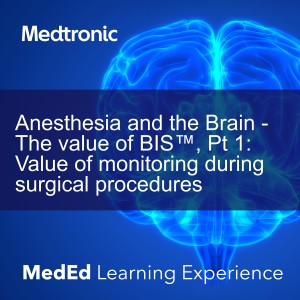
Friday Apr 01, 2022
Friday Apr 01, 2022
For this segment of the discussion on anesthesia and the brain, we discuss the value of using BIS™ monitoring during the surgical procedure. The discussion features Dr. TJ Gan, Professor of Anesthesiology and Distinguished Endowed Chair at Stony Brook University and Dr. Stephen Bader, Chief of Cardiothoracic Anesthesiology at Heritage Valley Health System in Beaver, PA to help provide insight. Brain monitoring is an adjunctive technology that should not be used as the sole basis for diagnosis or clinical decision-making.
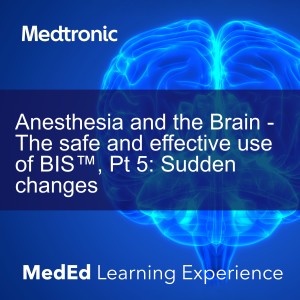
Friday Apr 01, 2022
Friday Apr 01, 2022
For this segment of the discussion on anesthesia and the brain, we discuss what should be done if there are sudden changes in BIS™ monitoring values. To help provide insight into this topic is Dr. Stephen Bader, Chief of Cardiothoracic Anesthesiology at Heritage Valley Health System in Beaver, PA. Brain monitoring is an adjunctive technology that should not be used as the sole basis for diagnosis or clinical decision-making.
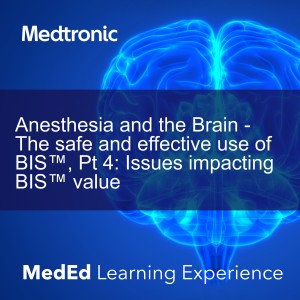
Friday Apr 01, 2022
Friday Apr 01, 2022
For this segment of the discussion on anesthesia and the brain, we discuss the issues that could impact the BIS™ monitoring values. To help answer this question is Dr. Stephen Bader, Chief of Cardiothoracic Anesthesiology at Heritage Valley Health System in Beaver, PA. Brain monitoring is an adjunctive technology that should not be used as the sole basis for diagnosis or clinical decision-making.
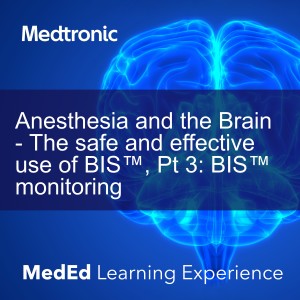
Friday Apr 01, 2022
Friday Apr 01, 2022
For this segment of the discussion on anesthesia and the brain, we discuss how BIS™ monitoring can be used with other traditional monitoring parameters during anesthesia management. To help provide insight into this topic is Dr. Stephen Bader, Chief of Cardiothoracic Anesthesiology at Heritage Valley Health System in Beaver, PA. Brain monitoring is an adjunctive technology that should not be used as the sole basis for diagnosis or clinical decision-making.
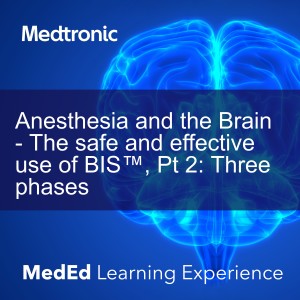
Friday Apr 01, 2022
Friday Apr 01, 2022
For this segment of the discussion on anesthesia and the brain, we discuss the three phases of BIS™ monitoring and how they can potentially provide useful information during anesthesia. To help provide insight into this topic is Dr. Stephen Bader, Chief of Cardiothoracic Anesthesiology at Heritage Valley Health System in Beaver, PA. Brain monitoring is an adjunctive technology that should not be used as the sole basis for diagnosis or clinical decision-making.
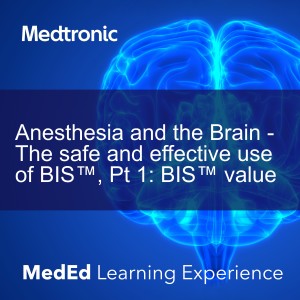
Friday Apr 01, 2022
Friday Apr 01, 2022
For this segment of the discussion on anesthesia and the brain, we discuss the BIS™ Monitor value range and what range the value should be kept between. To help answer this question is Dr. Stephen Bader, Chief of Cardiothoracic Anesthesiology at Heritage Valley Health System in Beaver, PA. Brain monitoring is an adjunctive technology that should not be used as the sole basis for diagnosis or clinical decision-making.
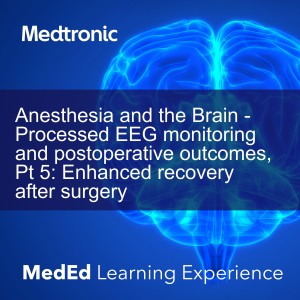
Thursday Mar 31, 2022
Thursday Mar 31, 2022
For this segment of the discussion on anesthesia and the brain, we dive into enhanced recovery and discuss how BIS™ can be included in the protocol. To provide insight into this topic is Dr. TJ Gan, Professor of Anesthesiology and Distinguished Endowed Chair at Stony Brook University. Brain monitoring is an adjunctive technology that should not be used as the sole basis for diagnosis or clinical decision-making.
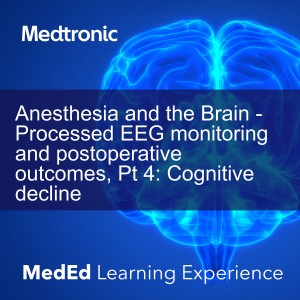
Thursday Mar 31, 2022
Thursday Mar 31, 2022
For this segment of the discussion on anesthesia and the brain, we discuss cognitive decline after surgery. To help provide insight into this topic is Dr. TJ Gan, Professor of Anesthesiology and Distinguished Endowed Chair at Stony Brook University.
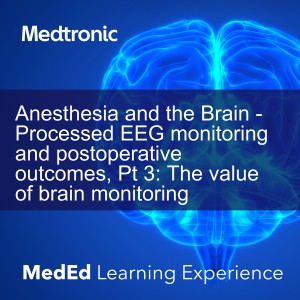
Thursday Mar 31, 2022
Thursday Mar 31, 2022
For this segment of the discussion on anesthesia and the brain, we discuss the value of brain monitoring. To help provide insight into this topic is Dr. TJ Gan, Professor of Anesthesiology and Distinguished Endowed Chair at Stony Brook University.
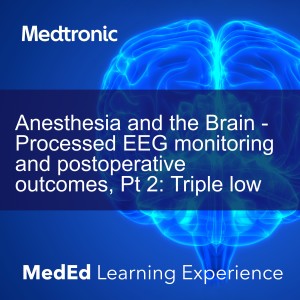
Thursday Mar 31, 2022
Thursday Mar 31, 2022
For this segment of the discussion on anesthesia and the brain, we dive into what "triple low" means. To help provide insight into this topic is Dr. TJ Gan, Professor of Anesthesiology and Distinguished Endowed Chair at Stony Brook University.


